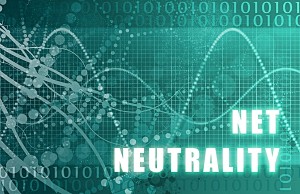Obama couldn’t be more wrong on Title II

By Erik Telford
President Obama on Monday announced his support for the strongest possible rules to implement net neutrality — aggressive regulation of Internet service providers through Title II of the Communications Act of 1934.
The president’s appeal to the FCC mentioned principles like “openness, fairness and freedom” in his argument for greater government control to ensure equal Internet access for everyone. Abandoning these principles of net neutrality, he said, “would threaten to end the Internet as we know it.”
The recycled rhetoric masks the fact that this is Obama’s most radical statement yet in support of not just net neutrality, but implementing it through Title II.
It takes a no-holds-barred position against requests from broadband providers and against even the poorly planned “hybrid” approach laid out by U.S. Rep. Henry Waxman, D-Calif.
Unfortunately, his position as outlined in his statement neglects a few critical details. Reclassifying the Internet under Title II would impose stifling new regulations and tax burdens that ultimately would have negative effects for both companies and consumers.
INTERNET WAR: President Obama announced his support this week for the strongest possible rules to implement Net Neutrality.
Title II of the Communications Act is an outdated law written for the purpose of regulating rapidly expanding technologies like telephone and radio service. It governs “common carriers,” which are public utilities subjected to hundreds of pages of federal regulations designed to ensure that they act “in the public interest” by providing the exact same service, at the same rate, to everyone.
These regulations make sense for electric, gas and landline phone service, since there isn’t a way for utility companies to deliver services in a significantly more innovative way than competitors who use the same technology and infrastructure to deliver the same product.
When it comes to Internet access, however, it’s a different ball game. Infrastructure is new and evolving at unprecedented rates. Recent innovations in fiber-optics, for example, are opening up an entirely new avenue for broadband delivery.
Given how much the Internet has revolutionized our lives in just the past 10 years, it’s absurd to think that an 80-year-old law will ensure the best service to consumers going forward.
The even darker side of bringing the Internet under Title II is that it will impose new fees on broadband access. Under current FCC rules, telecommunications carriers must contribute to the federal Universal Service Fund, a fee that stands at 16.1 percent of interstate telecommunications revenue. Under the current prices of broadband, that works out to a bill increase of about $7.25 a month for the average customer.
As a former FCC commissioner has said, that “would be perhaps the largest, one-time tax increase on the Internet.”







